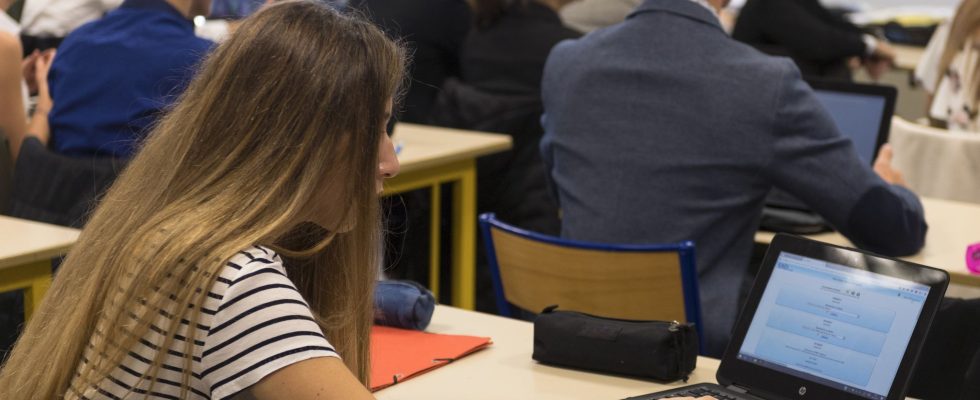The administrative court of Montreuil (Seine-Saint-Denis) rejected, Monday, June 26, the request for interim relief filed by Hachette, opposing a call for tenders launched by the Ile-de-France region. This concerns the development of an aggregator, which, like a Deezer for music, would bring together all the content of high school textbooks. The region now hopes to speed up the procedure and make the tool available to its 530,000 students in 474 public establishments, from the start of the next school year. With however a time of adaptation necessary for the editors. “Some are already ready for this changeover, others are not”, we confide to the headquarters of the local authority led by Valérie Pécresse (LR). It wouldn’t be surprising if a handful of houses were dragging their feet a bit. Contacted, neither Hachette nor other market leaders, like Editis, responded to our requests.
Because until now, each of these editors had its own interfaces. Which, in addition to the sales of paper textbooks – 20 to 30 euros per unit, renewed with each change of program -, represented a good return of money. Ile-de-France, with its three academies (Versailles, Créteil and Paris) buys no less than 1.2 million digital licenses each year at an average unit price of 8 euros. The Pearltrees application, already used by educational teams, could host the new aggregator.
“Considering that the container [NDLR : la plateforme] represents 30 to 40% of the cost of a textbook, the value of the licenses must drop because they will no longer have to take care of their development or their maintenance”, argues the side of the region, which finances full since the reform of the baccalaureate in 2019 the school resources of its high school students, and provides them, from the second class, a laptop.For four years also, establishments have had the choice between paper or digital textbooks. The idea being, as part of a “100% digital” policy, to encourage more high schools to opt for the latter.
“Bringing data into education”
But for the time being, the pupils of the establishments concerned are not always convinced by the multiple digital interfaces. Last year, about 15% of digital textbooks were downloaded in PDF. And some 25,000 licenses were used daily out of a total of 1.2 million. That’s barely 2%. The region also lacks user data. What content is the most popular? The most exploited? In short, the most useful for learners? “We want to bring data analysis, data, into education”, we explain at the headquarters of the region. A major challenge, in the era of generative artificial intelligence. But the issues go beyond that. Eventually, the aggregator could facilitate the use of new educational content, like the Econofides, these e-books produced under the supervision of the economist Yann Algan, already available to many students. And maybe give ideas to other academies and regions?
